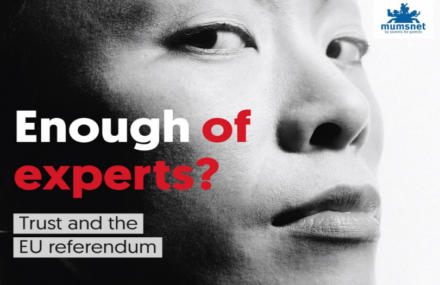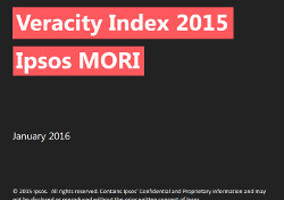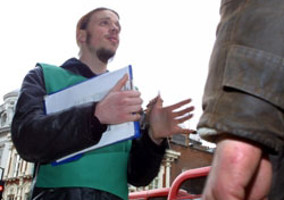Charity chief executives are less trusted by the public than hairdressers, lawyers and television news readers, according to survey data released over the weekend by Ipsos Mori.
Ipsos Mori’s Veracity Index 2016, which was published on Sunday, shows that just 46 per cent of people polled said they trust charity chief executives to tell the truth, compared with 45 per cent of respondents who said they didn’t trust charity chief executives to tell the truth.
1,019 adults were surveyed in face-to-face interviews by Ipsos Mori between 14 October and 1 November 2016. The Veracity Index is an annual survey which seeks to “rate the trustworthiness of professionals”.
Trust in charity chief executives’ telling the truth has fallen one point since the publication of the Veracity Index 2015, while those who believe that charity chief executives don’t tell the truth has increased by one point.
Trust in charity chief executives sits between economists (48 per cent) and trade union officials (43 per cent).
Nurses were the most trusted profession polled, with 93 per cent of respondents saying they trusted them to tell the truth. They were closely followed by doctors with 91 per cent, and teachers with 88 per cent.
Politicians were the lowest ranking profession in terms of trust in the truth, with just 15 per cent.
Only 36 per cent of ‘pre-war’ generation trust charity chief executives
A breakdown of the total survey data showed that only 36 per cent of people aged 65 and over trusted charity chief executives to tell the truth. 54 per cent of respondents in the same demographic said they thought that charity chief executives did not tell the truth.
Compared with the ‘pre-War’ generation, over 50 per cent of people aged 15-24 said they trusted charity chief executives; as did those aged between 35 and 44 years.
The data also showed that respondents in Wales were most trusting of charity chief executives – with 67 per cent saying they trusted what they said. The next most trusting region was London, with 56 per cent of respondents and then the North of England, with 46 per cent.
Education also seems to play a big part in whether one trusts charity chief executives or not. 59 per cent of degree or more educated respondents said they trusted charity chief executives, compared to just 38 per cent of respondents with only GSCE/O-Level equivalent.
58 per cent of broadsheet readers said they trusted chief executives, compared with just 44 per cent of respondents who identified themselves as tabloid readers. More tabloid-reading respondents said they didn’t trust charity chief executives, than those who said they did.
Asheem Singh, interim chief executive of Acevo - the umbrella body for charity chief executives, said: "It is fashionable to dismiss pollsters but this particular poll is illuminating. In trust terms, charity leaders find themselves in the Championship, alongside councillors and union leaders, below doctors and nurses and above politicians.
“The task is simple: get back to the Premier League. That means consistently demonstrating, as charities often do, the highest standards of transparency and ethical action. That also means being clear and robust about how we work the way we do, why we are professional, why we invest in our back offices and why we lobby for change that we cannot achieve alone. That is ACEVO’s task now and in the future”.
Related Articles












